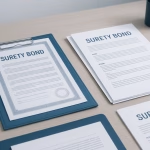Want to grow your savings with little fuss? A share certificate might help. This guide uses easy words and short sentences. It will tell you what share certificates are, how they work, and why you might use one.
What Are Share Certificates?
A share certificate is like a savings account. You lock in your money for a set time. In return, you earn higher interest. Credit unions offer share certificates. Banks offer a similar product called a CD (Certificate of Deposit).
How Share Certificates Work
- You pick a term. It might be six months, one year, two years, or more.
- You deposit your money.
- You get a fixed interest rate.
- You wait until the term ends.
- You get your money plus interest.
You can’t take money out early without a fee. Always check that fee before you open an account.
Why Use a Share Certificate?
Share certificates have three big benefits:
High Interest
You earn more interest than a regular savings account. Typical rates range from 1.5% to 3%.
Safety
The National Credit Union Administration insures up to $250,000. Your money stays safe.
Predictable Growth
The rate is fixed. You know how much you will earn.
These benefits make share certificates a strong choice for steady savers.
Downsides to Know
No product is perfect. Share certificates have downsides:
Limited Access
If you need cash early, you pay a fee.
Stuck Rate
If rates go up, your rate stays low until maturity.
No Extra Deposits
You must deposit your full amount at the start.
If you need more flexibility, you may want a different option.
Share Certificates vs. CDs
Share certificates and CDs work the same way. The table below shows their key differences.
| Feature | Share Certificate | Certificate of Deposit (CD) |
|---|---|---|
| Who Offers It | Credit unions | Banks |
| Who Can Open One | Credit union members | Any bank customer |
| Interest Rates | Often higher | Often competitive |
| Term Lengths | 3 months to 5 years (common) | 1 month to 10 years (common) |
| Early Withdrawal Penalty | Standard fee (varies by credit union) | Some banks offer no-penalty CDs |
| Membership Needed | Yes | No |
How to Open a Share Certificate
Follow these steps:
- Find a credit union. Look for good rates.
- Join the credit union. Meet its membership rules.
- Bring an ID. Provide proof of who you are.
- Deposit your money. Choose an amount you will not need soon.
- Pick a term. Decide how long to lock in your money.
- Read the fine print. Know the early withdrawal fee and any other charges.
Picking the Right Term
Your savings goal should match your term length:
- Short terms (3–6 months): Good to test the waters. Rates may be lower.
- Medium terms (1–2 years): Balance between rates and wait time.
- Long terms (3–5 years): Highest rates but long lockup. Best for long-term goals.
If you worry rates will rise, you can “ladder” your certificates. Open several at different terms. As one ends, reinvest at the new rate.
Current Rates (Late 2025)
- Short terms: 1.0% to 1.5%
- Medium terms: 2.0% to 2.5%
- Long terms: 3.0% or more
Shop around. Check multiple credit unions. Ask about special offers.
Real Example
Imagine you deposit $5,000 in a two-year share certificate at 3%. At term end, you earn $307 in interest. Your balance is $5,307.
Tips to Get the Best Deal
- Start Small: Try a short-term certificate first.
- Compare Rates: Look at several credit unions.
- Check Fees: Watch for hidden charges.
- Ladder Certificates: Stagger terms for regular access.
- Have an Emergency Fund: Keep extra cash outside your certificates.
Who Should Use Share Certificates?
Share certificates suit savers who:
- Have money they can leave untouched.
- Want higher, steady returns.
- Prefer safe, insured investments.
They are less ideal for savers who:
- Need full liquidity.
- Want to add to their savings over time.
- Want to switch rates quickly if rates rise.
Bottom Line
Share certificates offer a simple, low-risk way to grow your savings. You lock your money for a set term in return for a fixed interest rate. They pay more than a standard savings account and keep your funds safe.
If you have money you do not need for months or years, consider a share certificate. Compare credit union offers. Read the fine print. Choose a term that fits your goals. Watch your savings grow without lifting a finger.
Your savings goals can become real with a share certificate. Start today by finding a local credit union or visiting its website. Your money can work harder for you.
This guide uses short sentences, simple words, and clear steps to help you understand share certificates easily.
Common FAQ
Can I add money later?
No. You must deposit the full amount upfront.
What if I need money early?
You pay a fee. It might cost a few months of interest.
Is my money safe?
Yes. Up to $250,000 is insured by the NCUA.
When is interest paid?
Most credit unions pay at maturity. Some pay monthly or quarterly. Check with your credit union.





